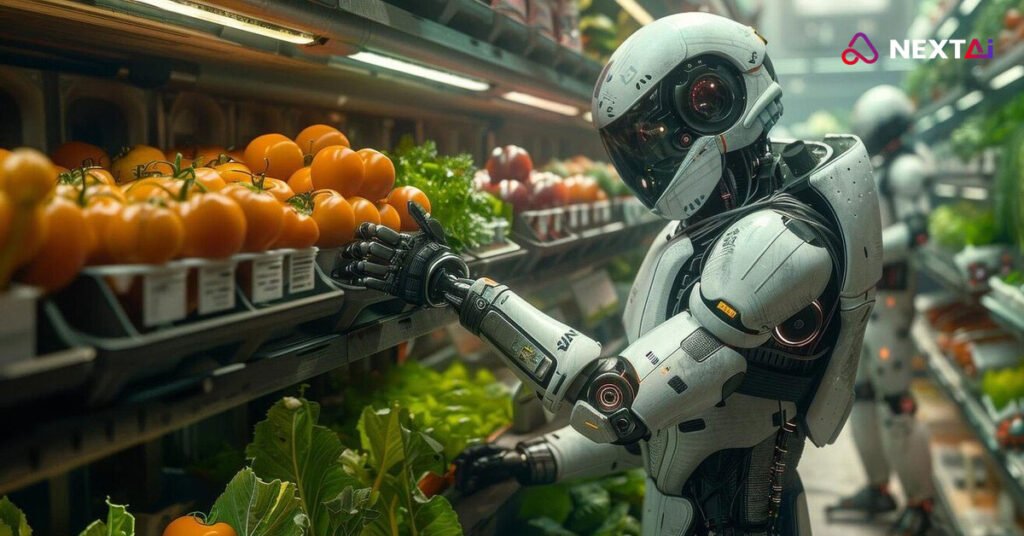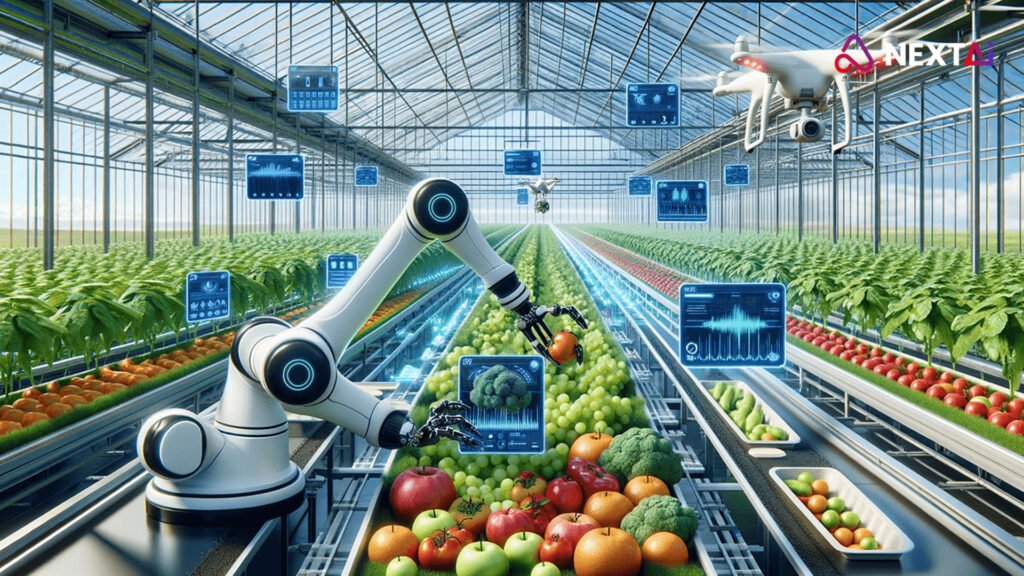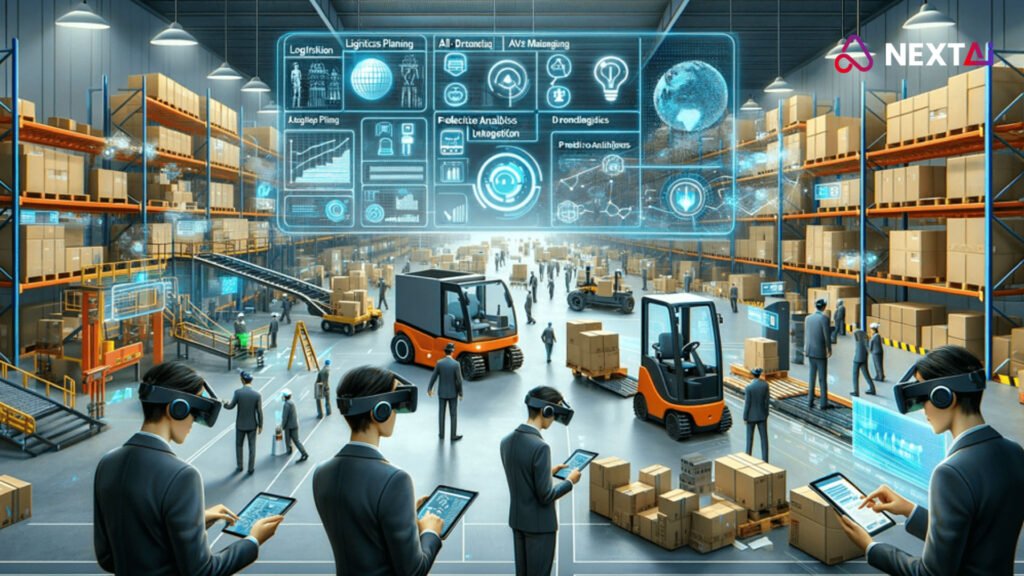
How AI is Transforming the Food Industry: Driving Efficiency, Sustainability, and Personalization
By Rajiv Rajkumar Bathija | AI in the food industry
With over 35 years of experience in technology and innovation, I’ve witnessed how Artificial Intelligence (AI) has revolutionized industries, including the dynamic world of food. The food industry, a cornerstone of daily life and global economies, is undergoing a dramatic transformation with AI at the helm. From optimizing supply chains to creating personalized dining experiences, AI is shaping the future of how we grow, prepare, and consume food. In this article, I’ll explore how AI is driving innovation and efficiency in the food sector.

AI is unlocking new opportunities in the food industry, addressing challenges like food waste, supply chain inefficiencies, and changing consumer preferences. By leveraging AI-driven insights, automation, and predictive analytics, the food industry is becoming smarter, more sustainable, and better equipped to meet global demand. Here’s how AI is transforming the food landscape.
1. Optimizing Supply Chains with Predictive Analytics
Supply chain management is one of the most complex aspects of the food industry, and AI is revolutionizing it with predictive analytics. By analyzing historical data, market trends, and weather patterns, AI helps food producers, distributors, and retailers optimize inventory, reduce waste, and ensure timely delivery.
For example, AI can predict peak demand periods for specific products, allowing companies to adjust production and distribution schedules accordingly. This reduces overproduction and minimizes spoilage, enhancing both profitability and sustainability.
2. Reducing Food Waste with Smart Inventory Management
AI-powered systems are helping restaurants, grocery stores, and food manufacturers tackle the global issue of food waste. By monitoring inventory levels and predicting expiration dates, AI enables businesses to make smarter decisions about stock rotation and purchasing.
For instance, AI algorithms can recommend discounts on perishable items nearing their expiration dates, encouraging sales before spoilage occurs. This not only reduces waste but also helps businesses maximize revenue and improve sustainability practices.
3. Enhancing Food Safety with AI-Driven Quality Control
Food safety is paramount, and AI is improving quality control processes by detecting contaminants, monitoring production environments, and ensuring regulatory compliance. Machine learning algorithms can analyze visual, chemical, or microbial data to identify potential safety issues.
For example, AI-powered cameras in food processing plants can detect contaminants or irregularities in products at high speeds, ensuring that only safe and high-quality items reach consumers. This automation enhances efficiency and reduces the risk of foodborne illnesses.
4. Personalizing Dining Experiences with AI
AI is transforming how restaurants and food delivery services engage with customers by offering personalized dining experiences. By analyzing customer preferences, dietary restrictions, and order history, AI can recommend tailored meal options.
For instance, AI-driven apps can suggest menu items based on a user’s previous orders or health goals, such as low-calorie or gluten-free options. This personalization enhances customer satisfaction and encourages repeat business.
5. Revolutionizing Agriculture with AI-Driven Insights
The food industry begins with agriculture, and AI is revolutionizing farming practices through precision agriculture. AI-powered tools analyze soil conditions, weather forecasts, and crop health to optimize planting, irrigation, and harvesting schedules.
For example, drones equipped with AI can monitor crop health in real time, identifying areas that need attention, such as irrigation or pest control. These insights help farmers maximize yields, reduce resource usage, and promote sustainable farming practices.
6. Predicting Food Trends and Consumer Preferences
AI’s ability to analyze consumer behavior and market trends is helping food companies stay ahead of the curve. By analyzing social media data, online reviews, and purchasing patterns, AI can predict emerging food trends and guide product development.
For example, AI might identify a growing demand for plant-based alternatives or functional foods like probiotics, enabling companies to innovate and launch products that align with consumer preferences. This proactive approach ensures relevance and competitiveness in a fast-evolving market.
7. Improving Food Delivery Logistics
AI is streamlining food delivery by optimizing logistics, reducing delivery times, and enhancing customer experiences. Machine learning models analyze traffic patterns, weather conditions, and delivery demand to recommend the most efficient routes for drivers.
For instance, AI-powered delivery platforms can dynamically adjust routes in real time, ensuring that food arrives fresh and on time. This efficiency reduces costs for delivery services and improves customer satisfaction.
8. Creating Innovative Food Products with AI
AI is enabling the development of new food products by analyzing flavor profiles, ingredient combinations, and nutritional values. Machine learning algorithms can simulate how different ingredients interact, helping food scientists create healthier, tastier, and more sustainable products.
For example, AI has been used to develop plant-based meat alternatives that mimic the taste and texture of traditional meat, meeting the growing demand for environmentally friendly food options. This innovation expands product offerings and appeals to health-conscious and eco-conscious consumers.

Final Thoughts: AI’s Role in Shaping the Future of Food (AI in the food industry)
AI is driving a paradigm shift in the food industry, transforming how food is grown, processed, distributed, and consumed. As a visionary in AI, I am excited about the opportunities this technology offers to improve sustainability, enhance food safety, and deliver personalized experiences that cater to diverse consumer needs.
From reducing food waste to innovating new products and optimizing delivery, AI is reshaping every aspect of the food industry. The future of food lies in harnessing AI’s potential to create smarter, more efficient systems that benefit businesses, consumers, and the planet alike.
If you’re ready to explore how AI can revolutionize your food operations, let’s connect. Together, we can create intelligent solutions that drive innovation and sustainability in the food industry.
#ArtificialIntelligence #FoodIndustryAI #RajivRajkumarBathija #Sustainability #FoodSafety #PersonalizedDining #PredictiveAnalytics #AgriTech
 Author: Rajiv Rajkumar Bathija
Author: Rajiv Rajkumar Bathija
